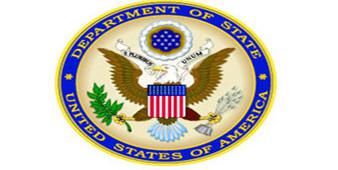
U.S. Bureau of Democracy, Human Rights, and Labor on religious freedom in Ukraine
23-11-2010
The American Bureau of Democracy, Human Rights, and Labor published its annual International Religious Freedom Report. The report analyzes religious demography, policy framework and legislation, restrictions of religious freedom, and societal respect for religious freedom.

"The government generally respected religious freedom in practice. There was no change in the status of respect for religious freedom by the government during the reporting period," reads the report. But "local officials at times took sides in disputes between religious organizations, and property restitution problems remained; however, the government continued to facilitate the return of some communal properties."
Anti-Semitism and anti-Islamism are reported as prime examples of societal abuse and discrimination based on religious affiliation, belief, or practice. There is no formal state religion but in certain regions of the country, smaller religious groups complained of unequal treatment by local authorities.
There are conflicts between the Ukrainian Orthodox Church-Moscow Patriarchate (UOC-MP) and the Ukrainian Orthodox Church-Kyivan Patriarchate (UOC-KP) regarding church property, also the UGCC in eastern Ukraine has problems with local authorities in obtaining land for church construction. Lviv's Jewish community is concerned about the ancient cemetery (now it is a municipal market which can be sold to a private investor). Also the Spiritual Directorate of Muslims of Ukraine reported some difficulties with registering new religious communities in Crimea due to what it considered the political bias of some local authorities. These are few of examples from the International Religious Freedom Report.
But the main issue according to Bureau of Democracy, Human Rights, and Labor is still restitution. "Restitution of communal property confiscated by the Soviet regime generally remained a problem. The slow pace of restitution was partly a reflection of the country's budgetary situation, which limited funds available to relocate occupants of seized religious property. In addition, restitution claims for the Christian, Jewish, and Muslim communities were complicated by intracommunal competition for particular properties," reads the report.
Information
The International Religious Freedom report is submitted to Congress annually by the Department of State in compliance with Section 102(b) of the International Religious Freedom Act (IRFA) of 1998. This report supplements the most recent Human Rights Reports by providing additional detailed information with respect to matters involving international religious freedom. It includes individual country chapters on the status of religious freedom worldwide.
Source: RISU














